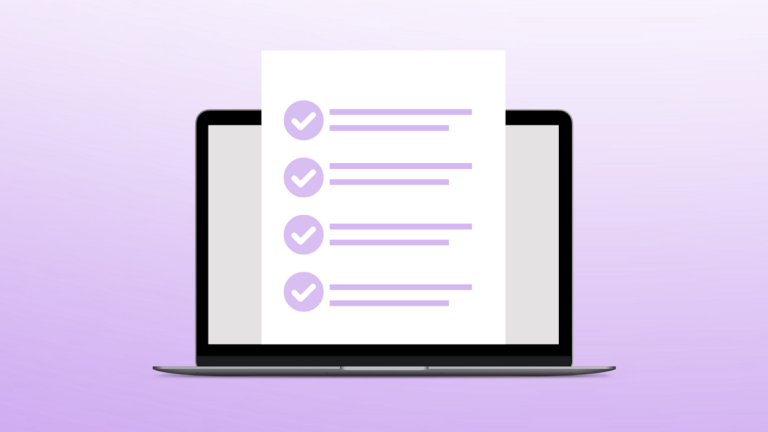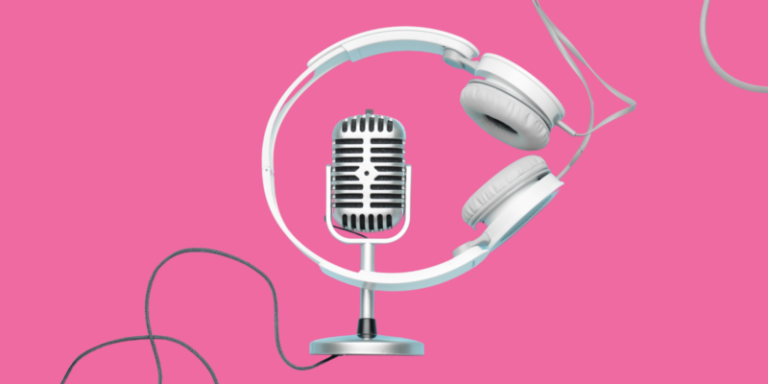You do it at your desk. You do it on the train. You do it in line at the DMV. Heck you probably did it while you were in bed this morning.
You write.
Whether you’re an architect or a banker, a developer or an interior designer, you my friend, are a writer.
It’s not what the man pays you for, but it’s what you do as part of your every day, in business and in life.
It’s a means to your end.
A necessary evil.
You write to make deals. You write to sell yourself. You write to get the insurance company to pay, to negotiate your kid’s college applications.
You get by with your writing. But you’re not happy about it. Writing reports, blogs, emails — it’s all onerous.
And you have a sneaking suspicion you’re just not that good at it.
And not being paid to do it is a poor excuse for doing it poorly.
I know, because I’ve tried this for years with math and the IRS couldn’t give a flying deduction if “I’m just not good with numbers.” It wants my quarterlies. And because I want my first quarter with a credit and not a penalty, I’ve learned the essentials of basic math.
If I can do that, then you can learn the basics of writing well, plus some tricks to elevate you above your competitor.
I’ve got eight actionable, ENCOURAGING, writing tips you can apply to everything your write today. That’s emails, blogs, social media posts, web pages, notes to the contractors, thank you’s to your mother-in-law. You can also download this slide deck. (I promise it’s light and bright and won’t make you feel sad like any recent Power Point you’ve had to endure.)
Download the free guide to writing better copy: Write Like a Badass
When you’re done reading you’ll have the tools to write copy that’s:
- clear
- punchy
- direct
The result will be more opens, higher click through rates and world domination.
Or maybe just that people enjoy what you’re writing enough to read to the end and follow your directed action.
Let’s get crackin’.
First, a word about grammar.
Grammar is critical to communicating your intended message and your professionalism. Grammar is like roaches in a restaurant. No one notices when you don’t have them, but it’s all they notice when you do.
So if you need help with grammar (and we can all improve, me included) pick up a copy of Elements of Style by Strunk and White, and maybe check out an online tool like Grammarly, where for a fee you can drop in your doc and it will do a thorough check.
But here’s where I want to be clear:
A hyperfocus on good grammar can get in the way of your message. You have something to say that’s valuable to your audience. If you have an accurate gauge on the way they like to be spoken to, you may be able to step outside the lines of “good grammar” and spread out into stylized writing.
It’s not for everyone. Or for every situation (I’m talking to you compliance department). My brother-in-law for one. He’s whip smart, works in technology, has an international sensibility, and he is really intense about grammar. He once called BMW corporate to point out their error in grammar in a print ad. So when he said to me the other day, “You know if you ever want me to read anything, I’d love to.”
I said, “I don’t think I want you to read my stuff.”
That’s because I prefer stylized writing (obvs) and I want to attract clients who want to market themselves with adventurous, creative content. He likes rules and for rules to be followed. And that’s why he works at a bank.
(Will there be a grammatical error in this blog? Probably. I’ll be perfect when I get to heaven.)
Take away: Know yourself. Know your audience.
If YOU want to attract clients and customer who are adventurous and creative, read on.
Start with the headline/subject line
There is no more important phrase than your headline or subject. The obvious reason, of course, is that it tells your readers what they can expect. It’s how they decide if what you’ve written is worth their time. But the secret reason the headline is number one, is that it keeps YOU on track.
Start with a working headline. What is this piece about exactly? You can finesse the phrasing and punch up the language later. For the download in this piece I started with the working headline: How to Craft Your Message. Later I settled on a bolder headline that I felt better expressed how writers feel when they have tools and the confidence to use them to move their audiences: Write Like a Badass.
As you work through your piece keep this in the center of your thinking. Cut out anything that seems tangential or unrelated. The more ruthless you can be in sticking to your headline, the more your piece of writing will be powerful and direct. Make your email/social post/blog about one thing and your readers will be more likely to open your doc, stick with you to the end, and feel they’ve gleaned one important piece of information.
(If what you’re really after is how to write an email everyone wants to open, read How To Write a An Email Your Readers Will Devour.)
Bonus tip: If I find a complete, but unrelated thought nestled in there, I cut and paste into a new doc and save it as a working headline for a new blog. Now instead of feeling like I had to cut a great line or that what I’m writing is crap, I’ve set myself up with an idea for another day. Winner.
Cut the weak words
I read a piece on Medium recently about how to build your startup before you go to work. The writer had some compelling, practical points about how to reorganize your day to build your idea. But damn it if the guy didn’t say “quite” 50 times.
Quite hard
Quite well
Quite uncertain
Quite easy
The repetition was distracting, but it’s the wishy washy, redundant character of the word “quite” (or very or really) that stole the authority and power from the piece.
Quite hard – How about just, hard? Or better yet, painstaking, exhausting, grueling.
A specific word is a strong word.
Was that business move bad? Or was it suicidal, or malicious, or counterproductive? They’re all bad, but only one can be accurate.
I love this quote from William Strunk Jr. from The Elements of Style:
“Rather, very, little, pretty – these are the leeches that infest the pond of prose, sucking the blood of words. The constant use of the adjective little (except to indicate size) is particularly debilitating; we should all try to do a little better, we should all be very watchful of this rule, for it is a rather important one, and we are pretty sure to violate it now and then.”
Can you never use a qualifier?
Sometimes it just feels right to, like when you’re REALLY ready for a beer or, “Kids, I’m very disappointed in the way you duck taped the neighbor kid to his big wheel.”
But quite often, you can cut it out by being direct and specific. Wink. Wink.
Search for the right word, but don’t break the flow
It bears repeating my earlier statement: The more specific the word choice the more powerful the message. But that doesn’t mean you immediately know the specific word you need.
When I write I often have a nugget of a thought before I have the details to populate it. So I write with a lot of Xs where words should go. I know if I stop to look up a stat or fact check somebody’s name or title I’ll lose the point of what I’m saying. Similarly, there are times when I can’t think of the exact word I want to use. Finding the specific word that accurately expresses what you’re talking about helps you avoid those weak qualifiers we talked about before. But your brain needs some time to process.
Rather than stopping to think hard about the juicy, just-right word, I write all the words that are related until my brain brings up the right file. Then I delete the ones I don’t need. Like in this sentence
And you can too if you have some rules, shortcuts, tricks, guidelines, checklist, cheat sheet, tips to guide you.
You have great ideas. They just don’t look that great.
If you’ve ever had the pleasure of reading a document at a government meeting, you know what a black and white wall of words does to a reader’s soul. It’s just as bad on the eyes. An eye needs a place rest. It needs cues for tone, emphasis, and important points.
You can give your readers’ eyes what they need with:
- Contractions
- Incomplete sentences – once in a while
- Unorthodox CAPS
- Parenthetical references (for little side notes)
- Italics
- Sentences that start with And. But. Because.
- Copious amounts of white space
- Bold
Example:
I cannot attend next week’s meeting for the Chili Cook-off and Coding Event. I hope that the committee will consider my previous activity ideas of baby wrangling, arm wrestling and methane recycling station. Perhaps the mayor will agree to judge chili pepper juicing submissions. Let’s circle back afterwards to decide which of the generously donated prizes to advertise. Thanks to all who contributed their time and goods.
Thank you all for your time and effort,
Shannon
What am I, a robot? Let’s try that again with feeling.
Example:
I can’t make our next Chili Cook-off and Coding Event meeting. Here are the ideas I submitted (I’m leaning toward number three):
- Baby wrangling
- Arm wrestling
- Methane recycling station
Think the mayor would judge chili pepper juicing submissions?
Thanks everybody,
Shannon
P.S. FANTASTIC work to all who secured donated prizes. You are THE reason this event will be a success. Cheers!
Take away: Contracting words or adding emphasis doesn’t make you appear less professional or flippant. It makes you sound not like a robot. Write like you talk. (Do I need to say, you must use discretion and be appropriate to your situation? Of course not. You knew that.)
Calm. DOWN.
I don’t know when the trend of exclamation points started, but I feel like everyone on the internet is yelling like a freshman cheerleader at a home game. I emailed you the specs this morning! Have a great day!! Your support ticket has been received!
(And the double question mark?? I find it antagonistic. The ?? is a veiled WTF.)
Save exclamation points for times when you are TRULY excited. Unless you think your customers are excited that their order of lice shampoo and zit cream has shipped…then have at it!
Passive voice. Just don’t.
I will not attempt a full grammar lesson here lest I be called out by a professional grammerizer. Let’s do examples instead.
- Once all parties agree the contract will be sent.
How is the contract going to get there? Who’s going to send it? To be delivered by fairies?
Try this:
- Once we come to an agreement I’ll send the contract.
How do you know if you’re using passive voice?
One, it sounds stiff.
Two, it sounds like things are happening magically without a person causing the action.
Three, your subject will likely show up at the end of your sentence. See “people in sales” in the example below.
- The deadline was missed by the people in sales.
- Sales missed their deadline.
Here’s another:
- The report will be generated by me every first Monday.
- I’ll generate a report every first Monday.
Clichés, they’re a dime a dozen.
Listen, we can use clichés and sayings, popular slang and business speak occasionally. Like a keyboard shortcut, they help us convey a point with little effort. But too many in one piece and you sound like you don’t have an original thought (or worse, that you are saying nothing). It’s only in overuse that they ding the credibility of your writing. So be religious diligent about editing them out.
To get rid of them, it helps to know how they got in there.
Here’s what the Grammar Girl says about clichés:
Clichés often appear in early drafts when you’re trying to keep the writing going but you’ve run out of words to describe an action, event, or person. That’s fine, but it’s a good reason to do successive drafts — no one gets it right the first time. Read through your article or story with the meanest critic’s eye. Do not be afraid to hurt your own feelings. Delete anything that might resemble a cliché and replace it with words of your own.
Check out this list of clichés from the University of Richmond writing center (Go Spiders!).
| all walks of life | give the devil his due | never a dull moment |
| behind the eight ball | hook, line, and sinker | nipped in the bud |
| bitter end | by hook or crook | patience of Job |
| calm before the storm | in the nick of time | paying the piper |
| checkered career | in the same boat | sands of time |
| chomping at the bit | leaps and bounds | selling like hot cakes |
| cool as a cucumber | leave no stone unturned | stick out like a sore thumb |
| cry over spilled milk | lock, stock, and barrel | whirlwind tour |
| fall on deaf ears | long arm of the law | winds of change |
| from time immemorial | march of history | writing on the wall |
You can keep clichés at bay (see what I did there?) by asking yourself, Can I be more specific?
Again, example from U of Richmond:
- People – Which ones? Be specific.
- Society – Who is “society”? Too many alternates exist to list. Be specific about which group.
- This day and age – Today, presently
Next time you think, what’s that saying?, stop and search for what exactly you want to convey and dig for specific words to express your point.
Last bit of advice: Before you hit publish or send, give yourself some time away from the doc, the longer the better. Because your next step to better writing is editing. Good writing is made in the edit phase. It doesn’t just flow out like a chocolate fountain.






